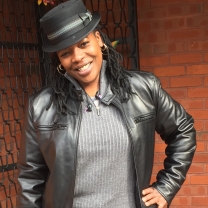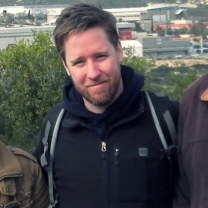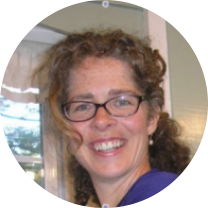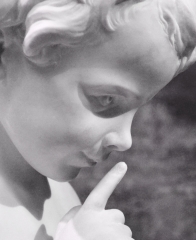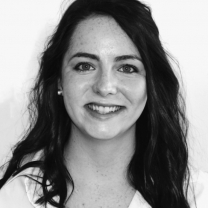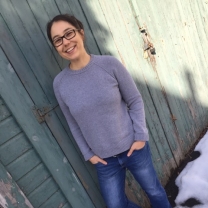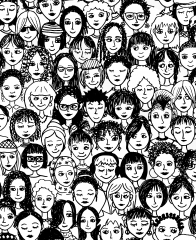 / The Philosophy of Change
Subscribe
/ The Philosophy of Change
Subscribe
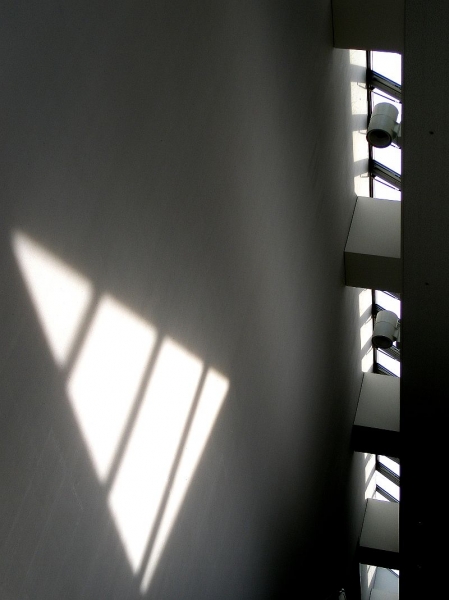
My daughter, Rakeisha, was 3 when I was arrested. Her sister, Aliya, was only 1. I was just 19. Some would say I had lived a lifetime in those 19 short years…and I kind of thought that I had. I thought I was pretty tough; that I knew how to navigate the streets and come out on top. That was, of course, until I let a fight with another girl spiral out of control and I ended up with a 25-year to life sentence for second degree murder.
Rakeisha’s quote (above) was the first line of her college admissions essay. In reading her words, I was struck by just how profound and complicated an impact my own experience had on my young children. I guess I should have realized that before. But, the most powerful life lessons can sometimes be long in coming.
Once in prison—Bedford Hills Correctional Facility, New York State’s only maximum-security prison for women—I immediately thought about getting out. I knew from the beginning that I really wanted to go to school. After all, I finally had the time (running the streets doesn’t leave much time for education or parenting). I earned my GED in 1993, my Associate's in 1999 and my Bachelor’s in Sociology in 2000. Alongside these academic courses, I took full advantage of parenting programs that allowed me to develop my skills as a mother, engage positively and deliberately in my daughters’ lives, and see them with relative frequency.
All of this education was truly a game-changer for me. It not only gave me knowledge and skills, but also confidence in my own ability and potential. As a black woman from a poor, urban neighborhood, the value of hope and ambition cannot be underestimated. For the first time ever, I saw myself with promise and with a future. How ironic that had to happen from behind 30 foot walls and barbed wire fences.
In particular, the philosophy classes that were part of my degree requirement helped drive my evolution. They provided a forum for active discussion and debate about logic, what makes sense and what doesn’t, and who defines the standards for truth and falsehood. These classes were some of my favorite because they allowed me to think for myself, and to articulate and defend my positions. At the risk of sounding clichéd, these classes provided an opportunity to find my voice and use it. I had never had that before. It was transformative.
We cannot overstate the importance of educating offenders. While it may seem counter-intuitive to invest in someone who may well never have the opportunity to use this education in public society, even in these cases there are real benefits. In my case, obtaining an education helped me to reflect on my choices prior to incarceration. I was able to see that without understanding the world and its opportunities, I couldn’t bring myself to care about my future, about others, about me. The United States penal system is not structured to provide opportunities for change and rehabilitation. Rather, it is designed to punish. It is, in my view, an extension of slavery, or a rebirth of slavery for those who believe it stopped existing. Having been stripped of everything, down to the chemicals in my hair, I was left with an ounce of agency. With it, I chose to educate myself. I accepted the punishment of committing a crime, but my free will would not let me accept the additional degradations designed to cause me to commit another crime. The United States Penal System did not mandate my education, nor did they pay for it. As such, they are not responsible for it. I took the responsibility to pursue my education because I saw that rehabilitation requires transformation, and it is education that provides the essential connection to that transformation.
At my graduation ceremony, my children were sitting wide-eyed in the audience. When they read my name and I walked across the stage, the crowd cheered so loudly that it felt like the walls shook. It was an incredible victory for me and for my daughters, especially because I was able to be the role model that they deserved me to be. I like to think that on that day, the extraordinary loss that my daughters suffered upon my arrest was somehow redeemed. And we were all the better for it.
I was released in June 2016 after completing 25 years. The months since my release have been very overwhelming, sometimes for the pettiest of reasons, which always strikes me as kind of interesting. While I still don’t have a job, it’s getting lost on the NYC transit system that always reduces me to tears. I am currently living with a non-profit that provides housing, job training and social work support. The most valuable resource here, however, is the community of women who really understand that I have no experience living in the free world as an adult. They understand because they don’t either.
In those moments when we are all together, trying to figure out how to make it through each day and plan for tomorrow, I reflect on the dynamic in my philosophy classes, where we had to push ourselves to think, to explain, to defend, and to believe. Because I did it then—I can do it now. All the reasons to have a liberal arts education are all the reasons why I have one.
Rakeisha’s opening line of her college essay was real and moving—and it worked. She got into her first choice college and went on to earn a Master’s of Social Work, and as a Licensed Clinical Social Worker, she currently uses her education and experience to support people with mental health and substance abuse issues. But her sentiment no longer feels correct. In retrospect and 25 years later, I can see that June 15th, 1991 wasn’t the day that Rakeisha lost her mother— but the beginning of my journey to become one.
Aisha Elliot is an aspiring advocate and a voice for the women still in prison.
Photo Credit: tanakawho, “Light & Shadow,” via Flickr, 17 February 2008.
